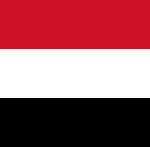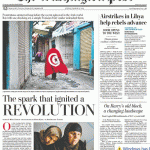INTERPOL media release
INTERPOL issues Red Notice for arrest of Muammar Gaddafi at request of International Criminal Court
9 September 2011
Issuance is first step to INTERPOL formally recognizing Transitional National Council as leading Libya
LYON, France – INTERPOL has issued Red Notices for Libya’s Muammar Gaddafi, his son Saif Al-Islam Gaddafi and former director of military intelligence Abdullah Al-Senussi after the Prosecutor of the International Criminal Court (ICC), Luis Moreno-Ocampo, requested the world police body to issue internationally wanted persons notices against the Libyan nationals for alleged crimes against humanity, including murder and persecution.
The publication of INTERPOL Red Notices for the three men is part of INTERPOL’s collaboration with the Office of the Prosecutor of the ICC to assist cooperating member countries in their efforts to enforce the arrest warrants issued by the ICC.
The Red Notices have been circulated to all of INTERPOL’s 188 member countries and include essential identifying and judicial information.
In addition to the publication of the Red Notices, INTERPOL is offering the full support of its Command and Coordination Centre and asking its member countries to take all measures consistent with their national laws to help the ICC locate and apprehend Gaddafi… [MORE]
2011/ رقم 72 9 أيلول/سبتمبر 2011
الإنتربول يصدر نشرة حمراء لاعتقال معمّر القذافي تلبية لطلب المحكمة الجنائية الدولية
إصدار النشرة الحمراء يشكل خطوة أولى نحو اعتراف الإنتربول رسميا بالمجلس الوطني الانتقالي باعتباره السلطة التي تحكم ليبي
ليون (فرنسا) – أصدر الإنتربول نشرة حمراء بشأن كل من معمّر القذافي وابنه سيف الإسلام القذافي ومدير المخابرات العسكرية السابق عبد الله السنوسي، وذلك بعد طلب المدعي العام للمحكمة الجنائية الدولية، لويس مورينو أوكامبو، من منظمة الشرطة الدولية إصدارَ نشرات خاصة بأشخاص مطلوبين دوليا بحق هؤلاء المواطنين الليبيين بتهمة
ARABIC Full Text [PDF]
—◊——◊——◊——◊——◊——◊——◊——◊——◊——◊——◊——◊——◊——◊——◊——
Thursday, September 08, 2011
![]()
![]()
ICC requests help from INTERPOL to locate Gaddafi
Michael Haggerson at 3:29 PM ET
![]()
 |
[JURIST] Chief Prosecutor for the International Criminal Court (ICC) [official website], Luis Moreno-Ocampo [official profile], announced on Thursday that he is seeking assistance [press release] from INTERPOL [official website] to locate and arrest former Libyan leader Muammar Gaddafi [BBC profile; JURIST news archive]. The ICC issued arrest warrants [JURIST report] for Gaddafi, his son Saif al-Islam Gaddafi and his brother-in-law Abdullah al-Sanussi for alleged crimes against humanity. Saif al-Islam Gaddafi was allegedly captured [JURIST report] last month but a free Saif al-Islam vowed to continue fighting [The Telegraph report] to foreign media. The whereabouts of Gaddafi and Abdullah al-Sanussi are currently unknown.The Libya conflict [JURIST backgrounder] has been ongoing since February. Last month, Libyan Prime Minister Al Baghdad Ali Al-Mahmoudi requested that the UN create a “high-level commission” to investigate alleged human rights abuses [JURIST report] by the North Atlantic Treaty Organization (NATO) [official website]. Though NATO was mandated by the UN to use force in order to stop Muammar from fomenting violence upon Libyan citizens, the campaign has allegedly gone beyond the scope of protecting civilians and recently led to the death of 85 civilians in one night after NATO forces bombed a residential area supposedly housing a rebel command center. In June, the UN Human Rights Council (UNHRC) [official website] decided to extend a mandate to an investigative panel instructing it to continue its investigation of human rights abuses in Libya, after it published a 92-page report [JURIST reports]. The report claims Libyan authorities have committed crimes against humanity such as acts constituting murder, imprisonment and other severe deprivations of physical liberties, torture, forced disappearances and rape “as part of a widespread or systematic attack against a civilian population with knowledge of the attack.”










